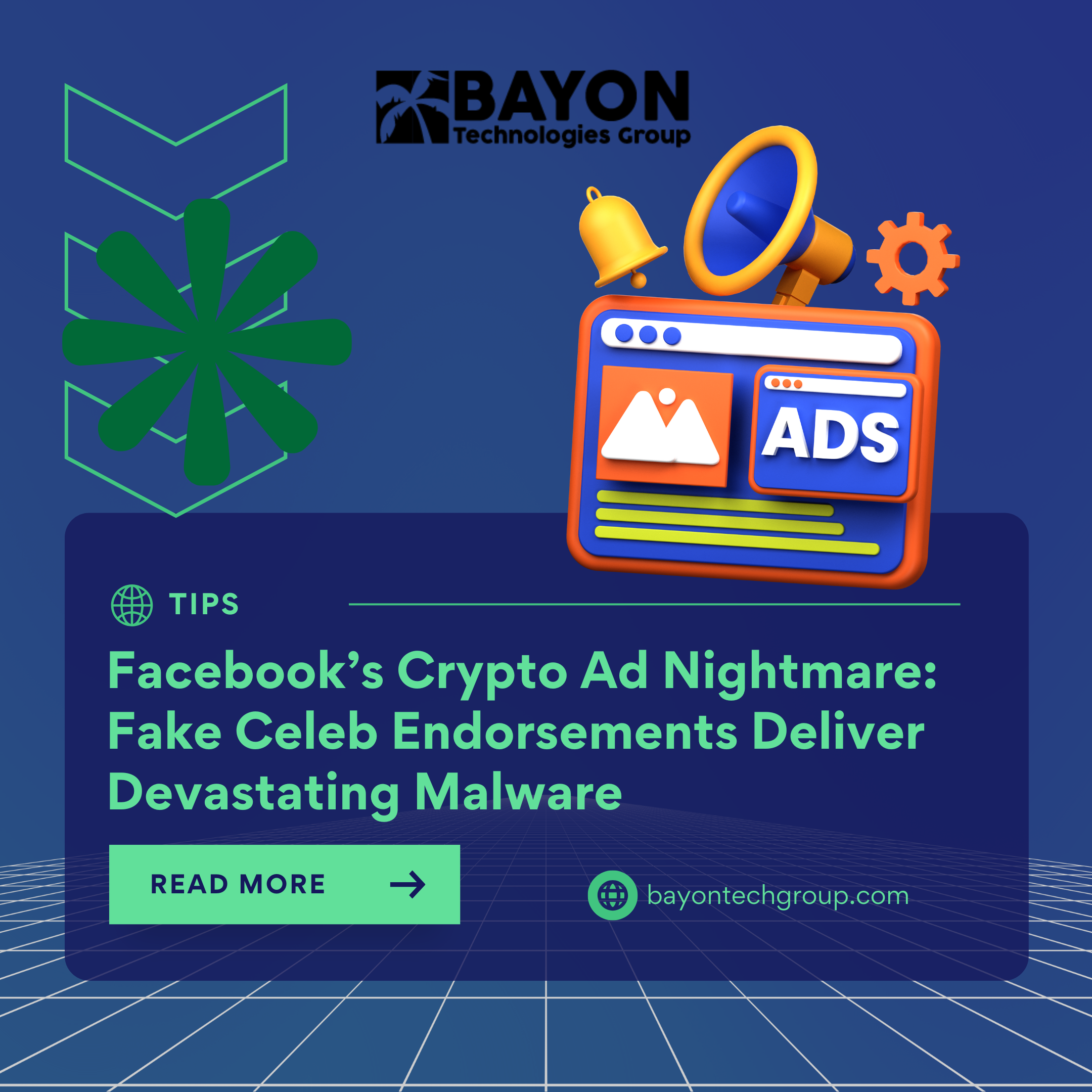Facebook’s Crypto Ad Nightmare: Fake Celeb Endorsements Deliver Devastating Malware

False cryptocurrency scams that install malware that drains banks are being promoted by a new wave of Facebook advertisements that pose as MrBeast, Elon Musk, and other celebrities. Cybercriminals turn trust into betrayal by targeting millions of people via Facebook's ad platform. Here's how these scams operate and how to protect your company and yourself.
The Anatomy of Scams: From Click to Disaster False Celebrity Advertisements
In order to produce "limited-time crypto giveaways" (such as "Elon Musk: Double Your ETH!"), scammers utilize deepfakes and stolen video.
- Fake Investment Portals
Professional-looking websites such as "TeslaCrypto[.]io" or "SpaceX-ETH[.]com" can be accessed by clicking on advertisements.
- Those who "register" or "claim rewards" download malware:
Trojan spyware that harvests cookies and passwords, such as StealC
- Crypto drainers use malicious browser extensions to deplete wallets.
Malware such as LockBit 4.0
Actual Impact: After an employee downloaded "Musk’s Bitcoin bonus," compromising their corporate wallet and QuickBooks, a small firm lost $120,000.
Why Facebook’s Platform Is Weaponized
- Algorithmic Amplification: Scams reach users interested in crypto/tech.
- Ad Approval Gaps: Fake ads use cloaking to bypass Facebook’s checks.
- Psychological Triggers: FOMO (fear of missing out) overrides skepticism.
- 200% Surge in crypto scam ads reported in 2025 (FTC).
4 Urgent Protections for Individuals
- You should never believe "too-good-to-be-true" offers.
Crypto is not given away by real celebrities.
- Check the Authenticity of the Ad
Verify the blue verification badges ➔ Report any questionable advertisements right away.
- Stop Dangerous Extensions
Unknown browser extensions should be removed (see Chrome://extensions).
To prevent remote theft, use hardware wallets to store cryptocurrency offline (Ledger/Trezor).
Companies Face Serious Hazards
Employee compromise results in:
- Financial Theft: Bank transactions or corporate cryptocurrency wallets that have been compromised
- Data breaches: Spyware stealing accounting files and client databases
- Damage to Reputation: Scams propagated via hacked social media profiles
Three Important Reasons Why Organizations Should Limit Access to Social Media
- Block Instagram and Facebook on work-related devices that handle money.
- Put Advanced Threat Protection into Action
Put AI email security and DNS filtering (Cisco Umbrella) to use.
- Perform Scam Drill Simulations
Make teams aware of deepfake advertisements and fraudulent portals.
Your Protective Barrier Against Social Media Malware: Bayon Technologies Group
Avoid being a victim of fake advertisements. The services offered by Bayon Technologies Group include:
✅ Social Media Threat Monitoring
Identify phony executive or brand advertisements that pose as your company
✅ Endpoint Malware Containment
Real-time blocking of spyware and cryptocurrency drainers
✅ Cyber-Drills for Employees
To develop immunity, Facebook scam operations were simulated
✅ Dark Web Surveillance
Notify if stolen logs contain corporate credentials.
Protect your finances, data, and reputation — before you’re the next victim!
‹ Back







